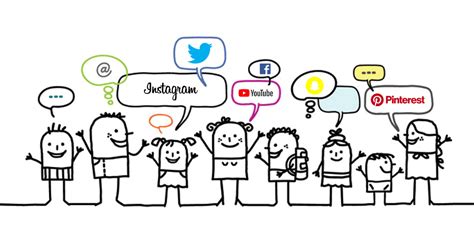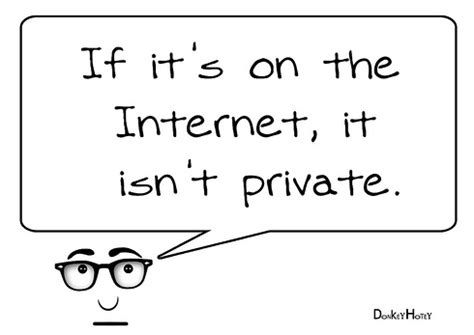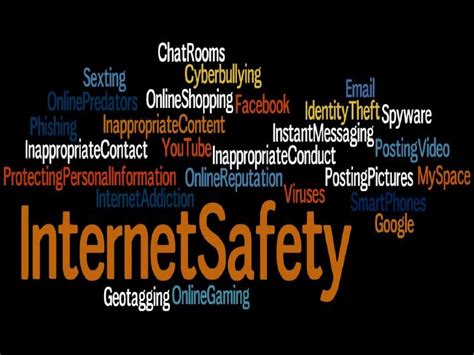Today’s kids are digital natives, and so are many parents. But tech-savvy doesn’t always translate into increased safety online. We asked cybersecurity experts for the best and most practical internet safety tips for kids, teens, and parents.
Child Internet safety during the pandemic and long after is a community effort. The United Nations Children’s Fund (UNICEF) shared a Tweet highlighting the importance of being vigilant now more than ever.
“As we tackle #COVID19, many children’s worlds have shrunk to just their screens. This leaves them vulnerable to online sexual exploitation, grooming, violence, and bullying.”
Here’s what communities can do to help:
- Schools and teachers should make sure they’re setting a good example of positive online behavior during lessons and regular communication. School districts should make sure counseling services are available as a safe space for children to share incidents, concerns, or ask questions.
- Parents and loved ones should regularly check on kids and their online activity. Make sure your home has a secure Internet connection and all Internet-connected devices have strong, secure passwords. Make sure your child limits screen time and encourages them to explore their imagination in other healthy ways. Game nights, crafts, and playtime outdoors are all popular ideas.
- App and website managers should enable as many online safety measures for their sites as possible. The technology industry as a whole should focus on parental controls and ways to make monitoring easy for parents.
Nowadays, kids are spending more time online. They’re learning, playing games, hanging out with friends, and more – all from their smartphones and computers. And as parents work online more kids aren’t always supervised. All things considered – scammers are targeting kids in clever ways that aren’t always so apparent. Start with the following to keep Internet safety for your kids a top priority. Here’s what else you need to know:
Talk About Internet Safety
- The FBI is encouraging parents to regularly talk about Internet safety with kids – including red flags and what they should use the Internet for. It’s also best to keep Internet devices in open, common areas of your home to quickly make sure your child is practicing safety measures.
Set-Up Parental Controls
- Authorities also recommend that parents regularly check their children’s Internet history, apps, and social media activity to make sure nothing goes unnoticed. This includes checking direct messages, files, and the history of websites visited. You can also regularly check and ensure safety using parental controls and privacy settings on their devices and social media.
Teach Kids About Online Abuse and Boundaries
- Most importantly, make sure children are aware of online dangers including sexual exploitation – sharing photos and fulfilling inappropriate requests from anyone – especially strangers. Teach them to never share personal information online and alert an adult if anyone is pressuring them to do so. If you notice this, contact local authorities immediately.
Introduce New Online Activities
- The Coronavirus has altered kids’ day-to-day with limited interactions and more screen time. But, the Internet shouldn’t be a scary space for kids. Instead, introduce them to new ways to enjoy the digital space. Here are a few ways to help kids run wild with their imagination online safely – and with adult supervision.
- Exercise and interactive games
- FaceTiming or video chatting with trusted loved ones
- Movies from their favorite streaming platforms including Disney+ and Netflix for Kids
- Cooking demos
Internet Safety Tips From The Experts
1. Establish as Few Accounts as Possible
“The more accounts you create, the more likely your data is going to be exposed online,’ explains Melody Haase of 4Discovery, a digital forensics firm that helps clients recover from data breaches and other privacy-related events.
Haase explains that younger people are often early adopters of technology, meaning they are some of the earliest users of new platforms and software. “They will create accounts on multiple platforms, and often those accounts are never fully set up with privacy settings, or they are never deactivated or deleted,” she says. This is a problem because every unsecured or forgotten account presents another opportunity for a data breach.

ImageSource:https://www.blogarama.com/companies-blogs/
Discarded accounts can also make it hard to maintain a good online presence down the road. Haase gives a real-world example: “I had a friend in college who forgot the password to his old Twitter account. This account was full of embarrassing content, and he no longer had access to the Comcast email connected to the account. This meant he could not reset the password and delete the account.” Not a situation you want to find yourself in! (According to Twitter, you’re probably out of luck if you can’t access your old email account, unless you protect your Twitter account with phone number verification.)
Parents: Teach your kids not to create unnecessary new accounts, or to ask you for permission before creating them. Delete accounts that are old or unused.
2. Both Kids & Parents Need To Avoid Oversharing
“Stranger danger” still applies online, says Chelsea Brown, a certified cyber-security consultant and founder of the blog Digital Mom Talk.
“Today’s kids aren’t taught about digital strangers and have trouble recognizing a friend from an enemy online. They also check-in, post pictures, and share details of their school, classes, friends, etc. While these items seem harmless, they contribute in a larger part to child identity theft, cyber-bullying, and child grooming online,” she explains.

ImageSource:http://www.dailymail.co.uk/sciencetech
Brown points out that parents share this responsibility. “Parents also overshare information about their children that doesn’t just compromise their identity, but it leaves their children vulnerable to other risks like cyber-bullying, grooming, and defamation of character to name a few. Many of my client’s children tell me that their parents don’t even care or are even aware of how what they share affects their children.”
Parents: Set rules for who your children communicate with online. Don’t allow kids to friend or message people that they don’t know in real life. Take a close look at the apps they’re using and the permissions they require. Apps that don’t have privacy controls or that unnecessarily share your location should be considered off-limits. Also, kids learn by example, so show them that privacy is important by respecting these boundaries yourself.
3. Nothing is Private
Raffi Bilek, Director at the Baltimore Family Center, is a family therapist practiced in helping people of all ages recover from online trauma. He told Safety.com that even though digital natives are more at home in cyberspace than previous generations, kids are still kids, and teenagers are still teenagers. They need help learning the consequences of their behavior.

ImageSource:https://danielsmits.blogspot.com/
“One of the biggest mistakes young people tend to make about their online lives is the mindset that ‘this is private.’ They will send a message or photo to a friend on the assumption that it won’t be shared, only to find out later that it’s gotten out – whether due to negligence on the part of their friend, or, unfortunately, a betrayal.”
He continues, “Worst of all is when an individual sends explicit photos to their significant other without fully considering that in all likelihood there will come a day when they won’t be together. Young folks have a much harder time considering the consequences of their actions, especially regarding the distant future (which, in their perspective, can run in months instead of years or decades). Inevitably some of those breakups go poorly, and one party is left with powerful weapons in their hands to use against their ex.”
While this scenario is comfortably far off for young kids, it does happen to adolescents and teens. And the lesson of privacy still applies to any other intimate exchange that happens online.
Parents: Counsel kids that nothing online is truly private, including one-on-one conversations. Even in “disappearing” environments like Snapchat or Facebook stories, where user content is only available for a limited time, it’s still possible for the viewer to save or record the information. Advise kids not to do anything online that they wouldn’t do in person.
4. Learn About Ads, Influencers & Sponsorships
Priya Rajendran is Director of Product Innovation and User Experience at Ford Motors – and she’s also the CEO of parenting app SmoresUp that brings tasks like chore assignments, family networking, and reminders into the 21st century.
One of the issues she points out often goes under parents’ radar: When kids are online, they receive an onslaught of marketing messages and sales pitches. Even if you have an ad blocker or parental controls, marketing messages still get through. That’s because social media makes it easy for ads or influencer posts to look like bona fide reviews.

ImageSource:https://kulturehub.com/fake-influencers-clout/
“Your kids will be constantly and unknowingly exposed to advertisements, especially from personalities they admire. Explain the concept of promotional posts, and show them how to tell if something is trying to influence you to buy something,” advises Rajendran.
Parents: Learn about the habits of online influencers to help your kids grow a healthy relationship with social media. Help your kids think critically about the messages they receive, and that hashtags like #ad, #spon, and #sponsored are some of the first signs to look for.
5. Know That Scammers Are Smart As Well
“Young people usually have a better awareness of social engineering and phishing but there is also the potential for overconfidence to blind them to new forms of cyberthreats,” observes Ray Walsh, an internet privacy expert at ProPrivacy.com.

ImageSource:https://www.4media-group.co.uk/
“Cybercriminals constantly look for new ways to target individuals using social engineering tricks that have never been attempted before and these novel techniques may cause even tech-savvy individuals to be caught out,” says Walsh.
The takeaway? Just because digital natives don’t fall for classic Nigerian prince-style scams, criminals know what they’re doing and they change their tactics all the time.
Parents: Remember the adage, “If it sounds too good to be true, it probably is.” Tell kids not to automatically trust every message, offer, or sale online. Don’t give them the ability to send money online until they can differentiate between legitimate exchanges and scammers. Also, teach them not to share personal info like birth dates, full names, street addresses, and social security numbers, if that applies in their situation.
Conclusion
We can only honestly hope children do the right things while we are not watching as Parents and Guardians.

